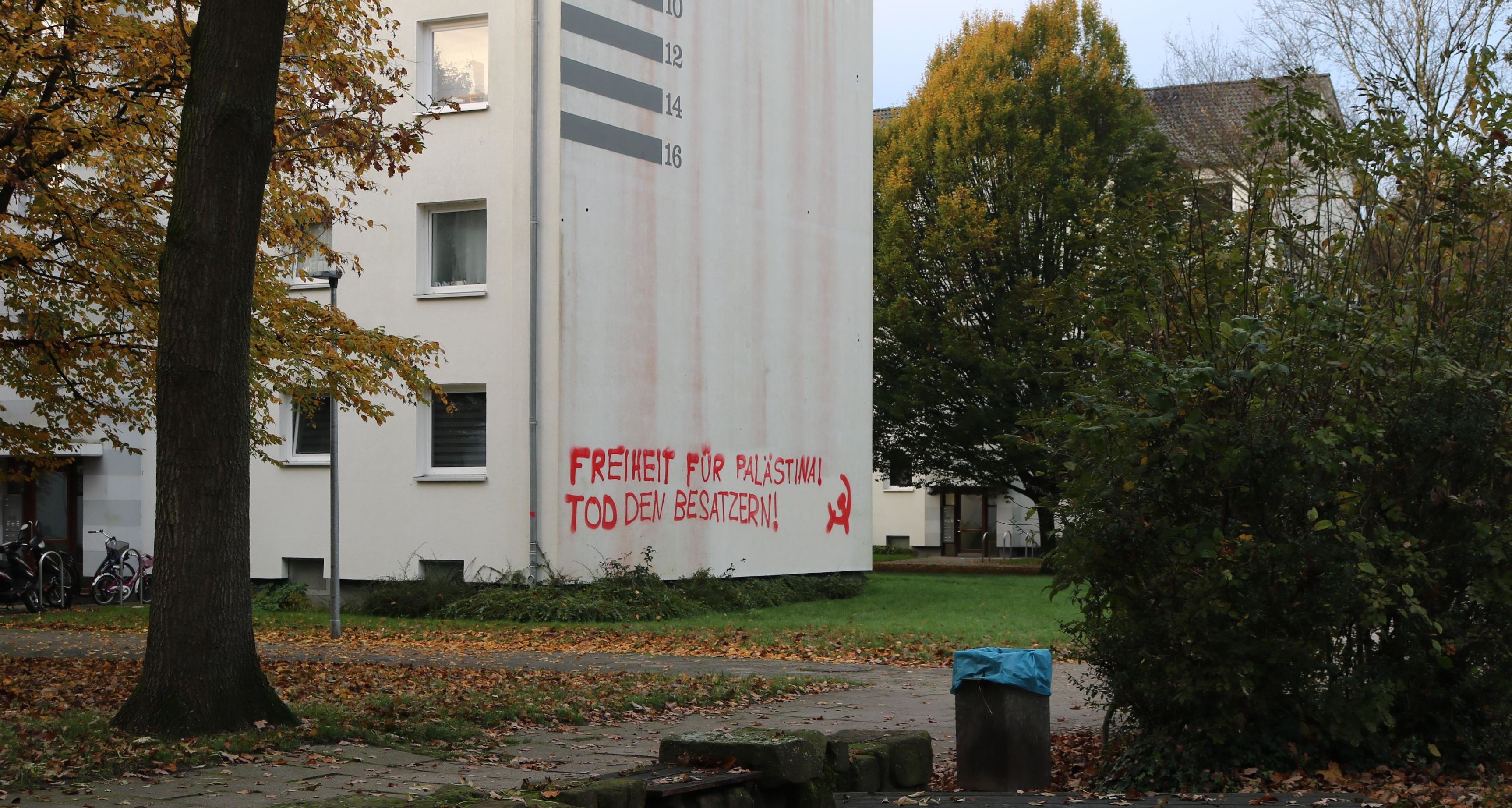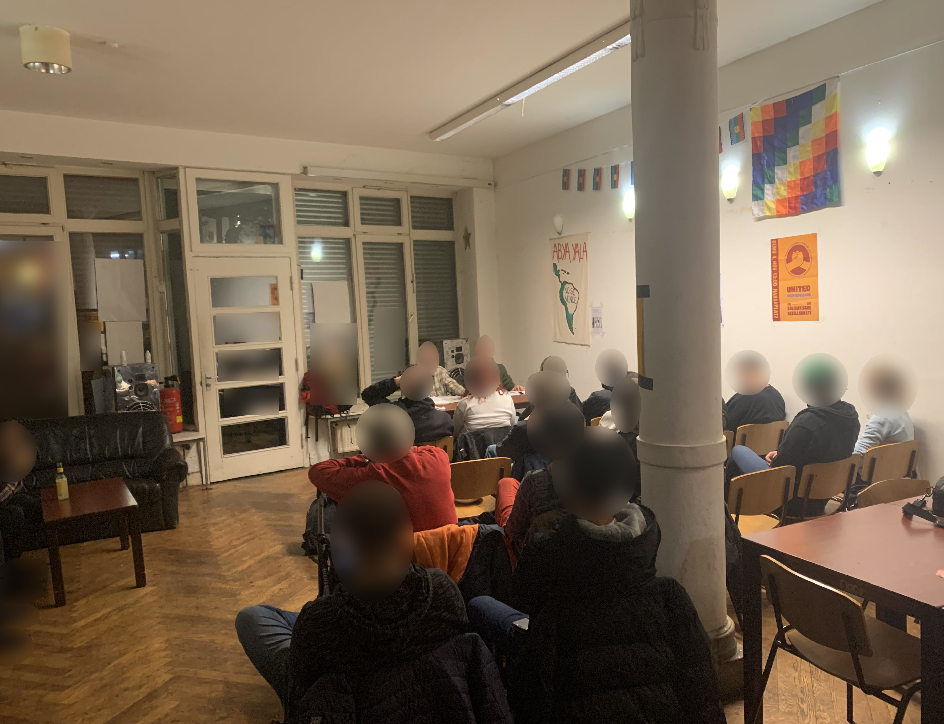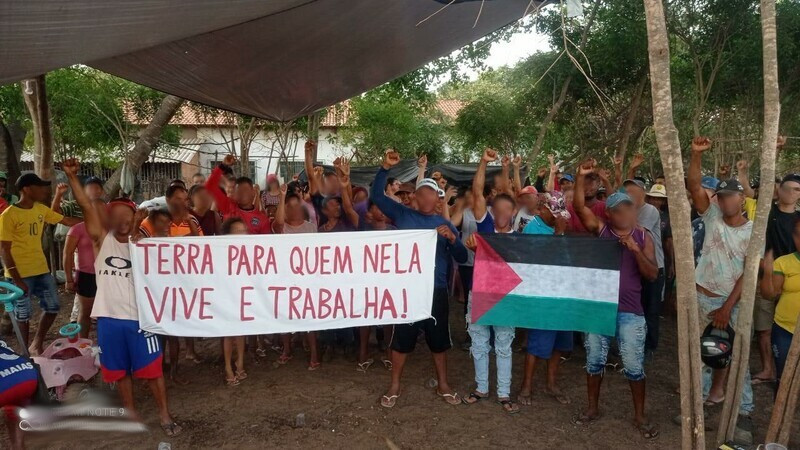Dokumente
Dokumente
- Details
- Category: BRD
On November 8, house searches were carried out simultaneously against anti-fascists across germany. The background to this is the events in Gera on May 1st of this year. There, protests against a fascist march led to clashes with the police. Now, around six months later, the repressive authorities have stricked and had apartments searched in five different federal states. However, the repression in this case should not be viewed in isolation, but is part of a larger general trend in the German state.
- Details
- Category: International
In view of the continuing counter-offensive of the national resistance of the Palestinian people and the operation "Al-Aqsa Flood" against genocide, expulsion and occupation by Israeli Zionism, solidarity actions with the heroic and self-sacrificing struggle of the Palestinian people are taking place all over the world. Communists and revolutionaries in Latin America are also taking part in actions in solidarity with the Palestinian struggle.
- Details
- Category: BRD
We are publishing pictures of graffiti sent to us from the working-class neighbourhoods of Gröpelingen and Tenever in Bremen. The slogans met with great approval among the proletarian masses and accordingly the reaction showed all its hatred of the peoples of the world and all its fear of Marxism being carried to the masses.
- Details
- Category: BRD
Last Friday, over 3,000 people gathered in the center of Essen under the call to stand up for an end to the genocide in the Gaza Strip, which is currently being perpetrated by the Israeli state. In the meantime, this demonstration has made it into the headlines of all major national bourgeois media and numerous state and federal politicians from the bourgeois parties have had to make statements about this demonstration.
- Details
- Category: International
In India, the Communist Party of India (Maoist) is currently leading a campaign to boycott elections in the states of Chhattisgarh and Madhya Pradesh.
As part of this boycott, the People's Guerrilla Liberation Army, the Red Army of the working class and peoples of India, is carrying out various actions under the leadership of the Communist Party of India (Maoist).
- Details
- Category: BRD
On November 2nd, the “Palestine Alliance Hamburg” organized an event on the current situation in Palestine. In particular, the current war crimes of the Israeli regime were denounced, but the repercussions of the latest wave of the Palestinian national liberation movement on the imperialist countries – especially Germany – were also highlighted. Just hours before the event, the German Interior Minister had banned and dissolved the Palestinian prisoner network Samidoun. This attack on the democratic right to freedom of organization and association by the German government was sharply criticized and condemned at the event. In the discussion, not only general political issues were discussed, but also concrete next steps to create publicity for the just cause of the Palestinians in the repressive atmosphere that prevails in Hamburg in particular (there is a general police order banning all “pro-Palestinian” gatherings).
- Details
- Category: BRD
What has long been the case in other European countries such as France is also slowly but gradually taking place more and more frequently in the FRG. In Germany, too, there have recently been increasing reports of spontaneous fights by workers and youths against the police and other so-called "emergency services". After the events that took place all over Germany on New Year's Eve this year, in which mainly young people and young adults from the deepest and broadest masses celebrated exuberantly on the streets and took out their anger against their exploitation and oppression on the police and other "emergency services", there have been the fights in Villingen-Schwellingen, the Eritrea festivals and the current fights in the context of the Palestinian liberation struggle, which is coming to a head above all in Berlin. There were also other small battles that largely went under the radar of the bourgeois press.
- Details
- Category: International
Brazil:
On October 7, more than 130 peasant families, with the support of the League of Poor Peasants, reclaimed lands in the town of Mocambinho, in the state of Minas Gerais.This land which in the past is currently part of the largest irrigation project in Latin America called " Jaíba". This does not benefit the poor farmers of the region and has led to the bankruptcy of many poor and small farmers who operate small irrigation systems themselves, while the profits flow into the "Jaíba" project, which is in the hands of large landowners. At the same time, many poor farmers in the region lack land to feed themselves and their families, which is why the peasant families have announced that they will reclaim the entire 18,500 hectares of the "Jaíba" project.








